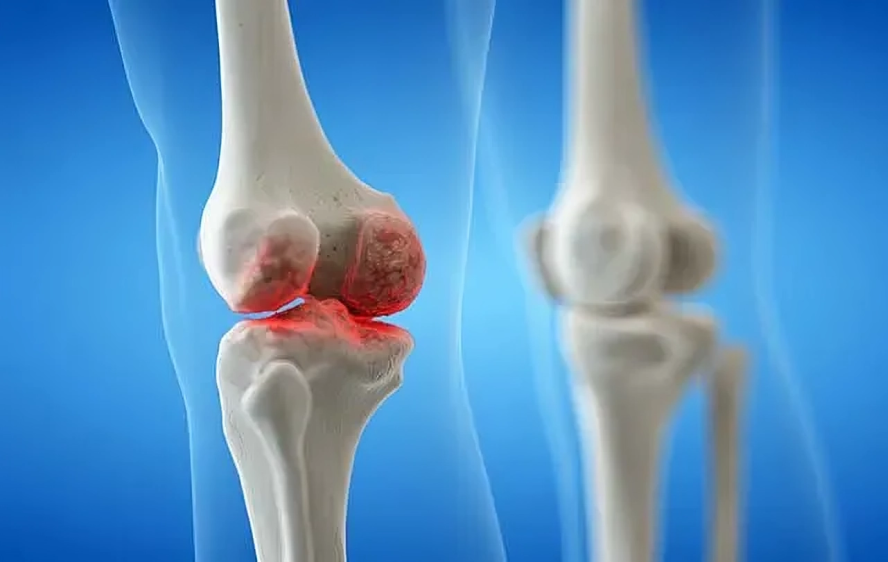Orthopaedic Infections
Infections involving the arms or legs can range from mild surface infections to deeper ones that affect muscles, fascia, or bones. Recognising the early signs and seeking timely medical care can help prevent the infection from spreading.
Superficial Infections: When the Skin Is Affected
These infections typically involve the outer layers of the skin and may occur when bacteria, fungi, or viruses enter through cuts or wounds.
Common examples include:
- Cellulitis – infection of the skin that causes redness, warmth, and swelling
- Superficial abscess – a small pocket of pus that forms beneath the skin
Treatment often involves topical or oral antibiotics or antifungal medication, depending on the cause.
Deeper Infections: Muscles and Bones
When infection spreads deeper, it can involve muscle layers or even bone tissue.
Examples include:
- Necrotising fasciitis – a severe infection that spreads along the fascia (the tissue surrounding muscle compartments) and requires urgent medical care
- Deep abscesses – pus collection within muscles or other deep structures
These infections may require hospital treatment and, in some cases, surgery to remove infected tissue.
Common Symptoms of Orthopaedic Infections
- Redness, warmth, and swelling in the affected area
- Pain or tenderness
- Pus or fluid discharge
- Fever or general unwellness
If these symptoms occur after an injury, surgery, or wound, it’s best to get assessed by an orthopaedic doctor.
Diagnosis and Treatment
Blood tests, X-rays, or MRI scans may be used to determine the severity of the infection.
Treatment usually includes antibiotics or antifungal medications, and surgical drainage may be needed if there is pus buildup.
Spinal Infections
What Are Spinal Infections?
Spinal infections occur deep within the spine, often starting at the disc space (a condition called discitis) and spreading to surrounding vertebrae, soft tissue, or spinal nerves.
An abscess may form and press on the spinal cord, leading to pain, numbness, or weakness.
Symptoms of Spinal Infections
- Persistent neck or back pain
- Numbness, tingling, or weakness in the arms or legs
- Fever or chills
- Difficulty walking or moving due to pain
Diagnosis and Treatment
Doctors may recommend blood tests, X-rays, or MRI scans to detect the infection.
Treatment usually involves medication such as antibiotics or antifungal drugs.
If an abscess is compressing the spinal cord or if there is bone destruction, surgery may be required to remove infected tissue and stabilise the spine.
When to See a Doctor
You should seek medical evaluation promptly if you experience:
Early diagnosis helps prevent complications and supports a smoother recovery.
- Back or neck pain that worsens over time
- Fever with pain or stiffness
- Numbness or weakness in the limbs
Frequently Asked Questions (FAQ)
1. What causes orthopaedic or spinal infections?
These infections usually occur when bacteria, fungi, or—rarely—viruses enter the body through wounds, surgery, bloodstream, or nearby tissues. Risk factors include diabetes, recent surgery, trauma, or weakened immunity.
2. Are spinal infections contagious?
No. Spinal infections are not spread from person to person. They usually result from bacteria or fungi that reach the spine through the bloodstream or after a procedure.
3. How long does recovery take after treatment for a bone or spine infection?
Recovery time varies depending on the infection’s severity, affected area, and treatment method. Mild infections may improve within weeks, while deeper or spinal infections may take several months to fully heal.
4. When should I visit a doctor for suspected infection?
See a doctor if you have persistent redness, swelling, or pain that worsens, especially if accompanied by fever or discharge. For spinal pain with weakness, numbness, or tingling, seek urgent medical attention.
Book a Consultation
If you’re experiencing symptoms of infection or ongoing pain after an injury or surgery, schedule a consultation with Dr Mash at Mash Spine & Orthopaedics for a thorough assessment and personalised treatment plan.





